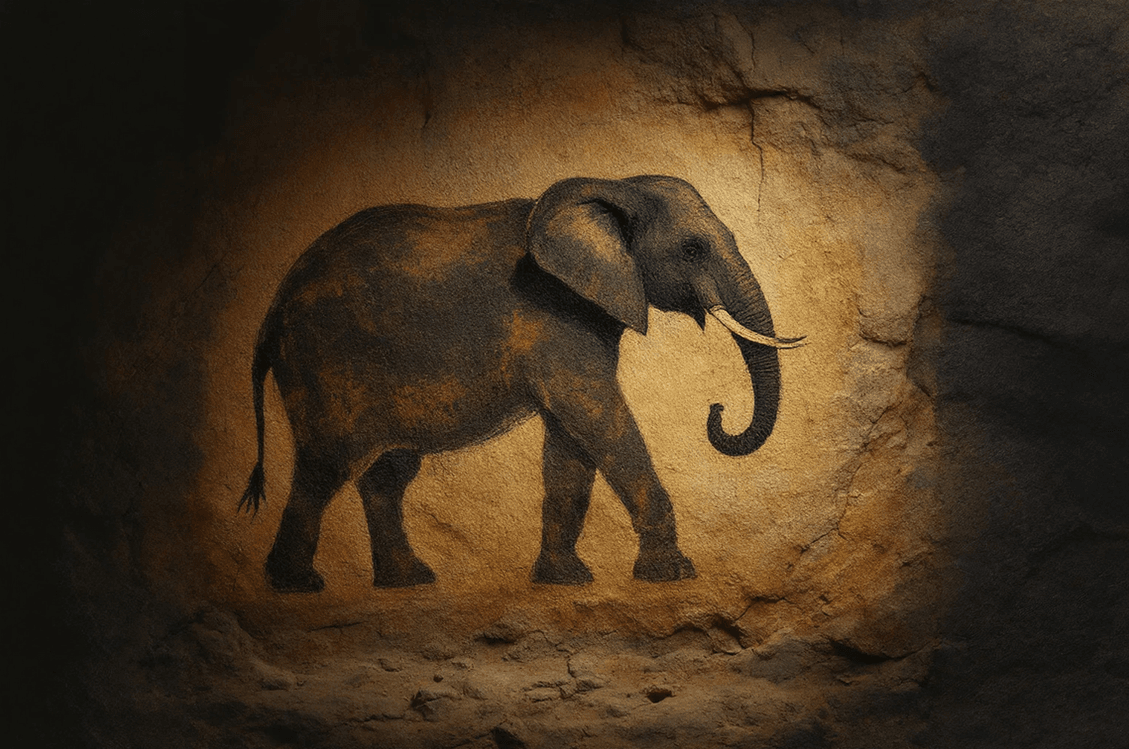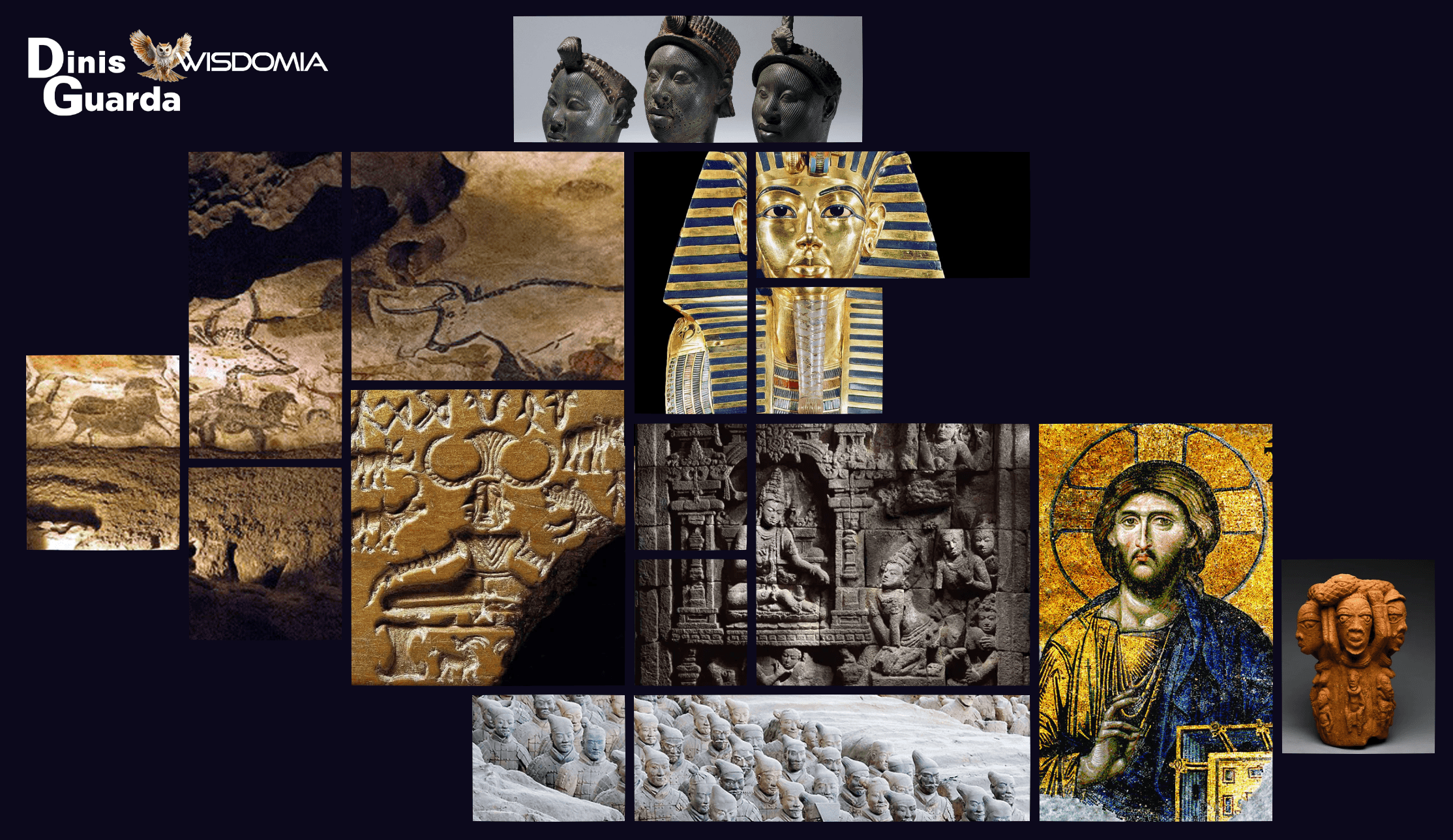The Symbolical Meaning of Elephants: Gentle Giants of Profound Wisdom
Hind MoutaoikiIR&D Manager
Mon Apr 28 2025

Elephants have occupied a distinctive place in human consciousness. These magnificent creatures transcend their physical presence to embody profound symbolism that resonates deeply across diverse cultures and spiritual traditions. From ancient cave paintings to contemporary conservation efforts, elephants carry symbolic weight that few other creatures can match.
Across continents and throughout millennia, elephants have occupied a distinctive place in human consciousness. These magnificent creatures transcend their physical presence to embody profound symbolism that resonates deeply across diverse cultures and spiritual traditions. From ancient cave paintings to contemporary conservation efforts, elephants carry symbolic weight that few other creatures can match. This article explores the rich tapestry of elephant symbolism and what these remarkable animals continue to teach us about ourselves and our relationship with the natural world.
Ancient Reverence and Divine Connection
The elephant's symbolic journey begins in prehistory, with evidence of human fascination dating back to Palaeolithic cave art. In ancient India, the elephant-headed deity Ganesha represents wisdom, intellect, and the removal of obstacles—a divine manifestation of the elephant's perceived sagacity. The god's elephant head symbolises the perfect union of earthly power and celestial wisdom, serving as a bridge between the physical and spiritual realms.
In Buddhism, white elephants occupy a position of particular reverence. The Buddha's mother reportedly dreamt of a white elephant before conceiving, linking these animals to divine birth and spiritual awakening. Throughout Southeast Asia, white elephants became symbols of royal power and divine blessing, so precious that they could neither be worked nor owned by commoners.
The elephant's association with wisdom isn't merely metaphorical. It's grounded in observation of their actual behaviour—their problem-solving abilities, extraordinary memory, complex social structures, and apparent emotional intelligence. Ancient peoples recognised these qualities long before modern science confirmed them.
Memory and Ancestral Wisdom
Perhaps no symbolic attribute is more commonly associated with elephants than memory. The phrase "an elephant never forgets" captures a profound truth about these animals, whose remarkable recall abilities serve crucial survival functions in the wild. Matriarchs lead their herds through vast territories, remembering water sources during drought and recognising hundreds of other elephants years after brief encounters.
This extraordinary memory has made elephants powerful symbols of ancestral wisdom and intergenerational knowledge transfer. In African traditions, elephants are often regarded as vessels of ancestral spirits or living libraries of environmental knowledge. Their long lifespans—up to 70 years in the wild—further cement their association with accumulated wisdom and the preservation of cultural memory.
Elephants embody the living wisdom of ecosystems,Their movements shape landscapes, create habitats for other species, and maintain biodiversity. They literally carry the memory of ancient migration routes in their minds, preserving knowledge that sustains entire ecological communities."
Strength Tempered by Gentleness
The elephant's immense physical presence—African elephants can weigh up to six tonnes—makes them natural symbols of strength and power. Yet what distinguishes elephant symbolism from other powerful animals is how this might is tempered by their generally peaceful nature. Unlike predators whose strength is expressed through aggression, elephants represent power exercised with restraint and gentle wisdom.
This balance is particularly evident in Asian cultures, where elephants symbolise stability, patience, and measured strength. Their substantial physical form suggests firmness and resolve, while their careful movements around smaller creatures demonstrate compassion and awareness. This combination of attributes appears in Hindu cosmology, where elephants support the very corners of the world, suggesting that the universe itself rests upon wisdom-guided strength.
Emotional Intelligence and Family Bonds
Modern scientific observation has revealed elephants to be extraordinarily social and emotionally complex creatures. They form deep familial bonds, mourn their dead, and display apparent empathy toward distressed herd members. These behaviours have reinforced the elephant's symbolic association with emotional wisdom and family loyalty.
In many African traditions, the matriarchal structure of elephant herds connects them to feminine wisdom, nurturing leadership, and community cohesion. The sight of a female-led elephant family moving protectively around their calves offers a powerful visual metaphor for collective care and intergenerational responsibility.
What's remarkable about elephant symbolism is how consistently it emphasises wisdom expressed through relationship, in Shona tradition, the elephant represents the ideal chief—powerful but fair, commanding respect through wisdom rather than fear."
Modern Symbolism and Conservation Wisdom
In contemporary culture, elephants have acquired new symbolic dimensions as flagship species for conservation efforts. Their declining populations due to poaching and habitat loss have transformed them into powerful symbols of humanity's often fraught relationship with the natural world. The elephant now carries the additional symbolic weight of environmental wisdom—the understanding that our wellbeing remains inextricably linked to the preservation of biodiversity.
Conservation organisations worldwide have adopted elephant imagery to represent the broader struggle for ecological balance and sustainable development. These modern symbolic associations build upon ancient foundations—the elephant as keeper of wisdom, now threatened by short-sighted human activity.
There's profound wisdom in recognising what elephant conservation teaches us about ourselves, When we protect elephants, we're not just saving a species—we're preserving living embodiments of ecological wisdom that evolved over millions of years. Their survival challenges us to think beyond immediate gains toward intergenerational responsibility.
Elephants in Art and Literature

The rich symbolism of elephants has inspired artistic and literary expressions across cultures and time periods. From Rudyard Kipling's "The Elephant's Child" to contemporary works like Lawrence Anthony's "The Elephant Whisperer," these animals consistently represent wisdom, memory, and moral strength in human storytelling.
In visual arts, elephants appear everywhere from ancient temple carvings to modern conservation photography. The recurring artistic fascination with elephants speaks to their enduring symbolic power—the elephant as a canvas upon which humans project our highest aspirations for wisdom, strength, and harmony with nature.
Elephant Wisdom for the Future
As humanity navigates increasingly complex environmental and social challenges, elephant symbolism offers timely wisdom. These animals demonstrate the value of collective intelligence, intergenerational knowledge transfer, and balanced strength—precisely the qualities needed to address global sustainability challenges.
The elephant's symbolic meaning continues to evolve, incorporating new understandings while maintaining ancient associations. In business, "elephant organisations" now describes established institutions that combine stability with adaptability. In psychology, having an "elephant memory" for emotional wounds highlights the importance of forgiveness. Even in technology, "elephant databases" store vast amounts of information while maintaining the ability to retrieve specific details—a digital echo of the elephant's legendary memory.
Conclusion
The symbolical meaning of elephants transcends cultural boundaries to offer universal lessons in the nature of wisdom itself. These remarkable creatures remind us that true wisdom combines strength with gentleness, intelligence with emotion, and individual capability with social responsibility.
As we continue to learn more about elephant cognition, communication, and culture, the scientific reality increasingly validates ancient symbolic associations. Perhaps the greatest elephant wisdom for our time lies in recognising our interconnectedness—how the fate of these magnificent beings remains inextricably linked with our own.
In protecting elephant populations and preserving their habitats, we safeguard not just a biological species but living symbols of wisdom that have walked alongside humanity throughout our evolutionary journey. The elephant's symbolic legacy challenges us to think and act with the same long-term perspective that has allowed these remarkable animals to thrive for millions of years—at least until recent human interference threatened their existence.
The elephant stands as nature's profound embodiment of wisdom—not as an abstract concept, but as a living, breathing example of intelligence tempered by compassion, strength balanced by restraint, and knowledge preserved through community. In their continued presence on Earth, they offer us the priceless gift of perspective—wisdom measured not in years or decades, but in evolutionary time.
previous
How Has the Development of Technology Positively Affected Our Wellness?
next
The Sacred Wheels of Wisdom: A Journey Through Mandala Art
Share this
Hind MoutaoikiI
R&D Manager
Hind is a Data Scientist and Computer Science graduate with a passion for research, development, and interdisciplinary exploration. She publishes on diverse subjects including philosophy, fine arts, mental health, and emerging technologies. Her work bridges data-driven insights with humanistic inquiry, illuminating the evolving relationships between art, culture, science, and innovation.
More Articles

IQ, EQ and SQ: Why Education Ignores the Third Axis

The Digital Convergence: When Images Became Everything, Everywhere, All at Once

Modern Revolutions and the Digital Explosion: Images That Shattered and Rebuilt Reality

Renaissance Humanism and the Birth of the Modern Gaze: Images That Taught Us to See Ourselves

When Vision Becomes Destiny: The First 25 Images That Shaped Human Consciousness





